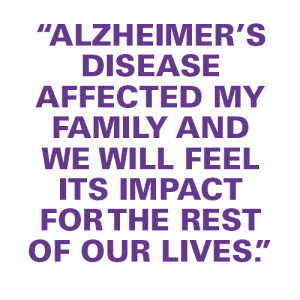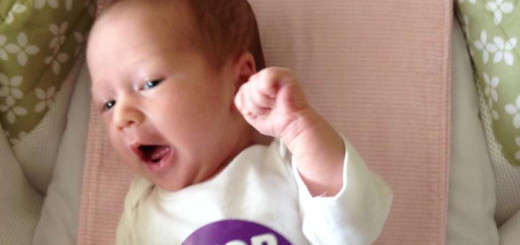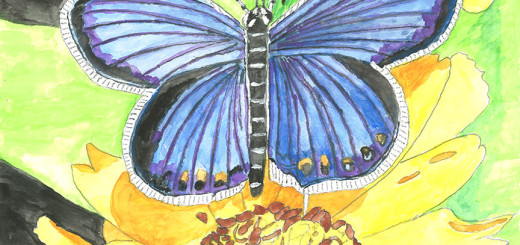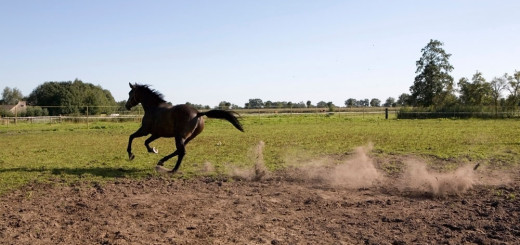Adjusting to Alzheimer’s, Grateful for Families, Friends and Help
Mr. Leu’s story:
To our dear friends,
 Some of you may have heard what has happened to us while others may not. After some thought, I decided to share with you that my wife was diagnosed with Alzheimer’s disease about 3 years ago, at the age of 51.
Some of you may have heard what has happened to us while others may not. After some thought, I decided to share with you that my wife was diagnosed with Alzheimer’s disease about 3 years ago, at the age of 51.
You may not have any direct experience with Alzheimer’s patients, or you may have heard something about it but not quite sure what it is exactly. Let me share with you some of our stories. Even before her diagnosis three years ago, we noticed something was not quite right with her for a few years. We didn’t know exactly what happened at that time. We visited doctors but didn’t get anything definitive. The first sign we observed is that her short-term memory became poor. She would occasionally ask same question more than once, sometimes multiple times. Most people associate Alzheimer’s disease with short-term memory loss. To me, what’s even more troubling is she started losing the ability to plan ahead and reason. She started to skip certain tasks occasionally. She sometimes has difficulty completing familiar tasks at home, such as cooking, cleaning, and managing bills. She also seemed to perceive spatial relationship differently than we do. For example, when there are cups on a table, she would ask people to move those cups toward the center even though those cups are at least a few inches away from the edge of the table. She is concerned that the cups may fall off the table. When I’m driving these days, she sometimes complains that I’m driving dangerously as she feels our car is too close to the cars next to ours. Because of this spatial perception issue, I decided to hide away her car keys for safety reason. She obviously didn’t like the fact that she couldn’t drive any more. Through advice from other caregivers of Alzheimer’s patients, I learned to distract her attention and she usually forgot about the issue in a couple minutes. This lasted a few weeks and now she seems to accept that it may not be safe for her to drive any more. Of course, that means her mobility is greatly restricted. This is yet another aspect we have to adjust.
What made this even tougher is all these happened while our son was going through his high school years. At times, I felt like I am a single parent. I felt sorry for him that a 16 years old boy has to deal with this tough transition, on top of the typical teenager issues.
It goes without saying that our life has changed drastically since then. She was very depressed immediately after she heard the diagnosis, which is understandable. It took her a few months to accept it and try to find ways to deal with it. During those months, she would stay in bed even during the day. We also had to adjust with the progression of the disease. I’ve been taking on more and more housework since she wasn’t able to manage as well as she could before. I also worry about safety issues as she may forget to turn off the stove or oven, especially when I am not around. She had to reduce her work hours. Her social network has shrunk quite a lot at a time when she needs support most.
Despite all these, we are grateful to have help from our family and close friends. Without their help, it would for sure be much tougher. In addition, we are grateful to get to know Alzheimer’s Association and have access to the resources it offers. We have since then received plenty of advice, support, knowledge, and ideas from them and I expect that to continue. I have participated in several of their classes and support group meetings, and I also decided to volunteer at Alzheimer’s Association for the rest of my life. What touched me the most is I decided to join Walk To End Alzheimer’s, an annual fund raising event organized by the Association. After learning about the event, my son called and offered to fly back from college so he can walk with his mom on that Saturday. I will forever treasure this memory.
Alzheimer’s disease affected my family and we will feel its impact for the rest of our lives. What troubles me is that it already impacts tens of millions as of today and will have an even more devastating impact to human race as life expectancy continues to grow. At the moment, it’s the sixth leading cause of death in US and it’s the only disease in the top ten leading cause of death without any cure. We don’t really know what it starts and how to slow it down effectively. This is scary!
I feel strongly that I should get the words out about this horrible disease. By sharing our story, we can raise awareness of this disease as the first step and urge all of you to pay attention to the health of your brain in addition to the rest of your body. Hopefully, that will eventually lead to significantly more resources allocated to help fight with this disease, no matter it’s in research to find a cure or providing support and services to millions of affected families like us.
Though the journey will be getting more and more challenging along the way, I am not worried. Because I know I have friends like you to count on, I have Alzheimer’s Association with me whenever support or help is needed, and I know as the community and the whole nation starts to pay attention to this issue, the day of finding a cure to this disease will be closer.
Thank you all. We are grateful to have you as friends. I sincerely hope you will join us to fight this disease and we shall overcome.

















